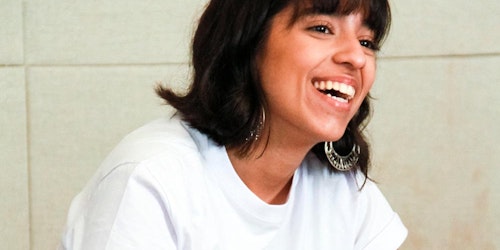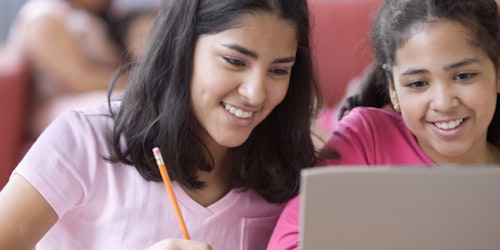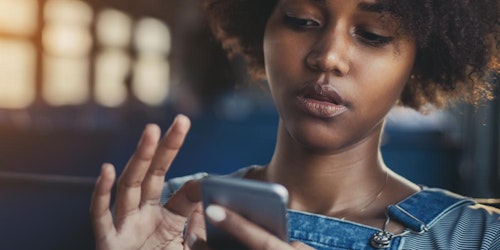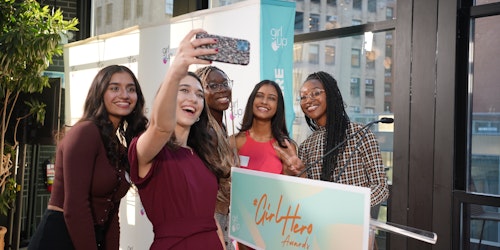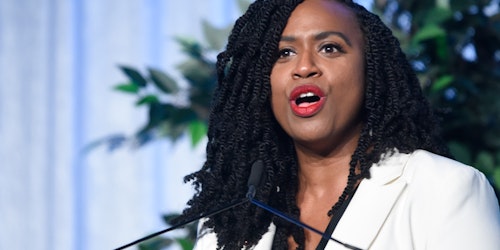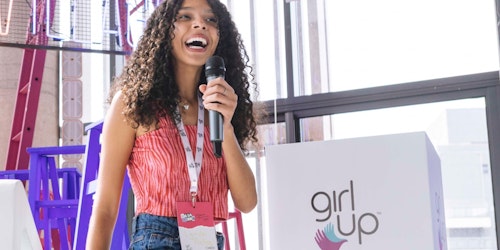Estimated reading time: 8 minutes
Delving into another transformative journey, Girl Up India had the privilege of engaging in a conversation with Afghan activist Freshta Karim. Freshta is the driving force behind Charmaghz, a Kabul-based NGO dedicated to promoting literacy and numeracy skills among children through providing resources and space on buses turned into mobile libraries. This interview seeks to shed light on the project’s mission and how it has been instrumental in reshaping access to books and learning in Afghanistan.
Could you tell us a little bit more about your initiative – “Charmaghz”?
Back in 2018, we initiated a project by transforming a public bus into a mobile library in Kabul on a snowy day. The project was made possible by the generous donations of our friends. Today, we have expanded to 23 vibrant libraries, known as Charmaghz, which translates to walnut in Persian, and focus on literacy and numeracy skills for children. Despite the challenging circumstances in Afghanistan, our team has grown with 80% of them being women. We are thrilled to mark our fifth anniversary this year.
Congratulations on completing five years! In her book Teaching to Transgress, bell hooks writes, ‘my hope emerges from those places of struggle where I witness individuals positively transforming their lives and the world around them.’ In many ways, Charmaghz has done incredible work in transforming access to knowledge and learning in Afghanistan. Could you tell us more about the vision and mission behind the project?
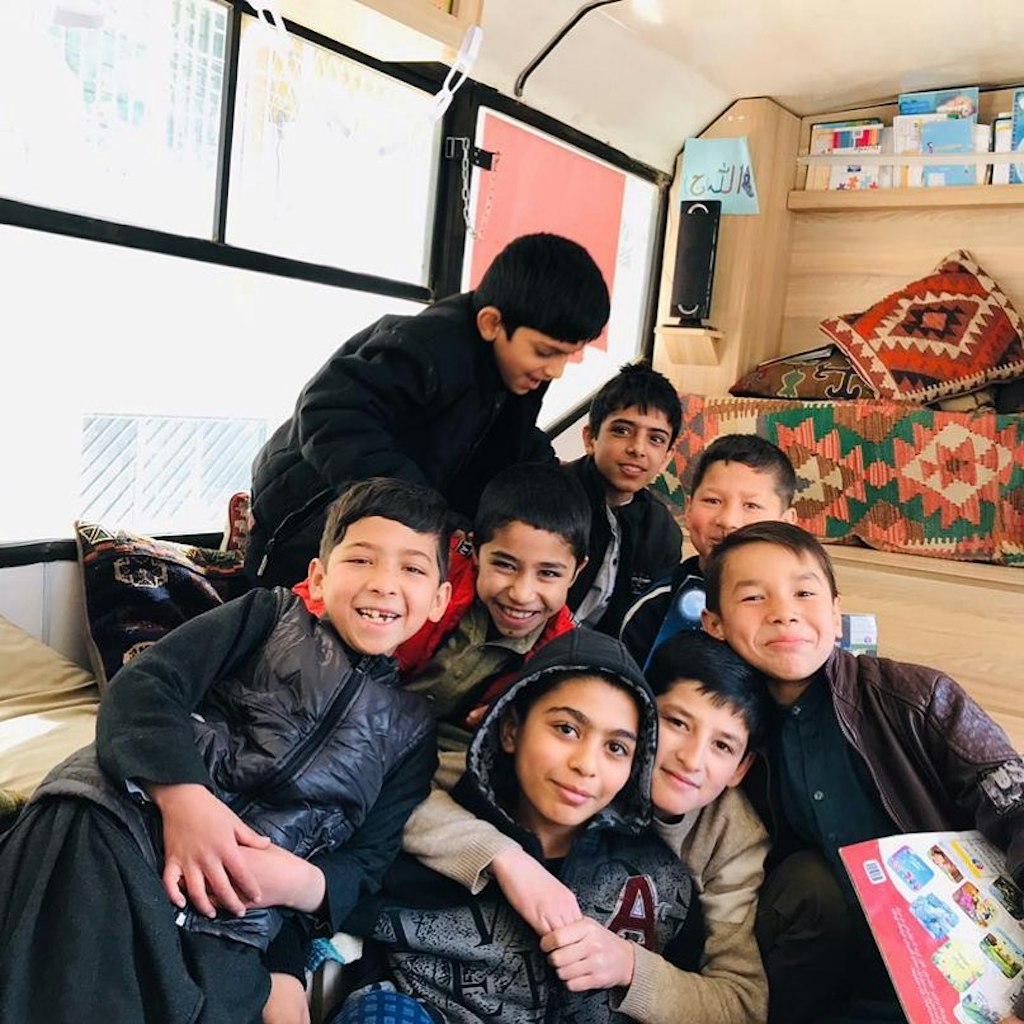
It’s a coincidence that you mentioned bell hooks; I’m currently reading All About Love. Our world, especially in my context, often seems to be driven by revenge, fear, and anger rather than love, kindness, and openness to learning. It’s disheartening and saddening to witness. However, I also see hopeful moments in people, especially in children. They are inherently hopeful, with their curiosity, open hearts, and minds. They quickly trust and form friendships, embracing learning and questioning.
The education system in Afghanistan, and Asia in general, often discourages questioning, promoting rote learning instead. At our libraries, boys and girls sit and read together. Later, society imposes notions of superiority and inferiority based on gender, taking away from children what should be theirs – the freedom to be themselves.
Our vision is to empower children in our country, giving them the agency to make decisions and change their circumstances. We focus on literacy and mental health because these are vital for anyone to feel empowered and have control over their lives. Each of us possesses a level of power, often untapped, and by recognizing and utilizing this power, we can collectively bring about significant societal change.
If we believe in equality, then we should involve children and teenagers in designing any program or curriculum, especially when it concerns them. Otherwise, it’s a top-down, undemocratic approach that disregards equality.
Each of us possesses a level of power, often untapped, and by recognizing and utilizing this power, we can collectively bring about significant societal change.
Can you share with us your experience as a young learner? Did your education contribute to shaping your activism?
I attended a public school in Afghanistan after being a refugee in Pakistan during the Taliban period from 1996 to 2001. In school and at home, I couldn’t ask questions; it wasn’t a welcoming environment. My breakthrough came when I began working as a children’s TV show host. There, I realized my duty was to ask questions, and I loved it. I interviewed children about their problems and government officials to bridge the gap between them. Even at 12, I felt I had the agency to be a voice for children, and that’s how my journey began.
In an interview with the World Economic Forum, you talked about how you had little to no exposure to libraries as a child. How do you think books, libraries, and greater access to education can help reimagine a future, particularly an inclusive and gender-equal one? Do you think finding joy in reading is connected to building greater mental well-being and resilience in people?
Many children worldwide lack access to libraries – a basic resource that fosters creativity, imagination, and knowledge. Reading allows us to empathize with others, understand complex emotions, and become less judgmental. Governments, as decision-makers, must recognize that learning extends beyond schools. Rote learning can be incredibly dull. We owe it to children and ourselves to make life more interesting by addressing this issue.
Additionally, growing up in a conflict-affected area, I’ve come to realize the importance of finding moments of joy amidst the pain. Particularly, when you’re an activist working on issues that expose you to the misery of the human condition, it’s crucial for our mental well-being. Allowing joy helps us maintain sustainability in our work.
Reading allows us to empathize with others, understand complex emotions, and become less judgmental.
After graduating from Panjab University in India, you went back to Afghanistan and are, currently, living in London. Has your experience of living and studying in different places led you to believe that establishing transnational solidarities is crucial?
I firmly believe that it’s crucial, more so now than ever, to remind ourselves that boundaries are human-made constructs. We are all fundamentally the same. In my experience, while I’ve encountered those who violate human rights, I’ve also witnessed people going above and beyond to improve others’ lives. Even in the darkest times, we find hope in humanity. When facing personal threats, we must remind ourselves that there are individuals who stand with us. For example, during the Afghanistan evacuation, someone familiar with my work from Latin America offered to sponsor a private jet, despite never having met me in person. This demonstrates the depth of human kindness and solidarity.
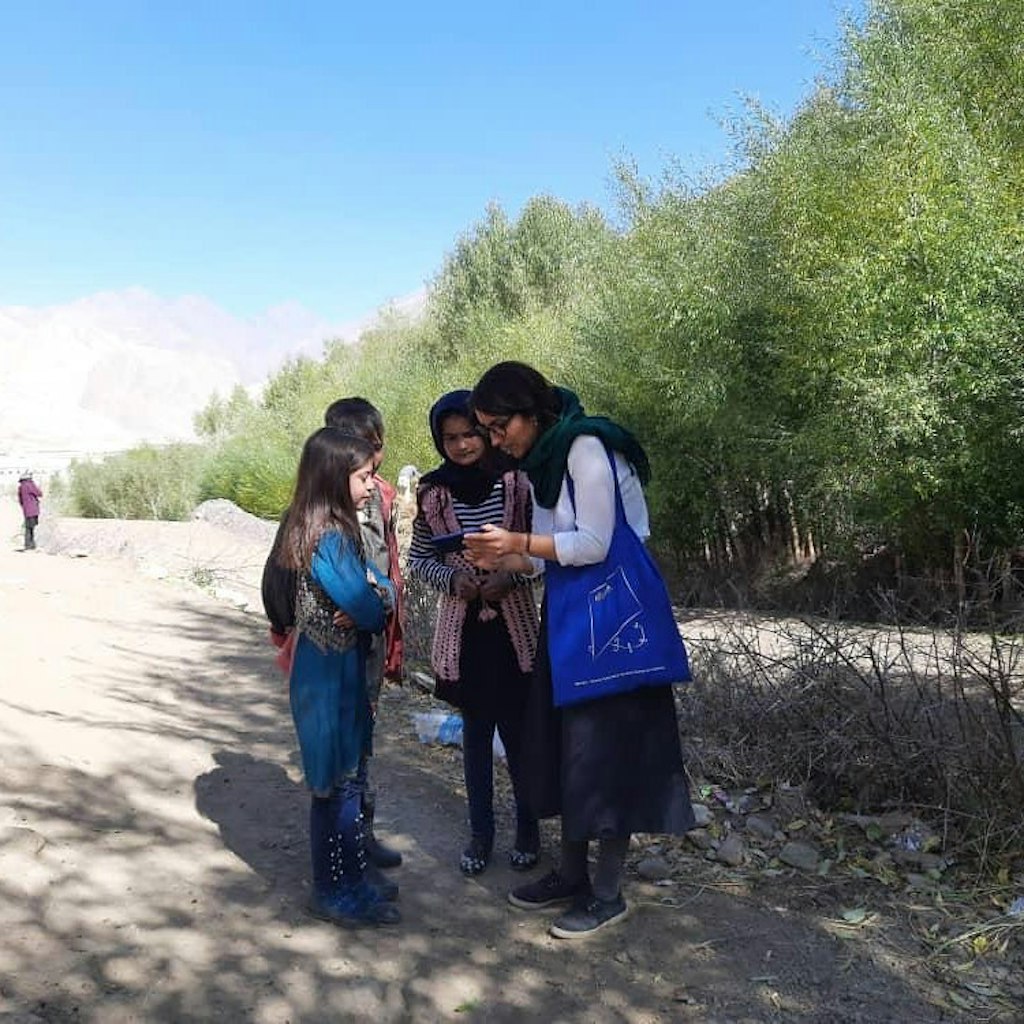
There should be a revolution in international relations where humanity is prioritized over a narrow focus on ‘my people’ and ‘your people.’ It’s a long journey, but I hope that women in politics and individuals from minority backgrounds can drive this shift toward valuing humanity above all else.
Your work and activism have pushed the envelope for girls’ and women’s rights in several ways. What advice do you’ve for young changemakers advocating for gender equality?
I want them to appreciate themselves and look at themselves with compassion. As activists, we’re doing a lot, but we often forget to prioritize and love ourselves. So, I would like to say this to every advocate and changemaker: Remember you’re doing a lot; hug yourself, love yourself, and foster friendships. Friendships are vital for joy in our lives, and they provide support during difficult moments. This path can be lonely, so we must have a network of people who will hold us, make us feel loved, and enable us to care for others.
Even in the darkest times, we find hope in humanity.
This interview has been edited for length and clarity.
Follow Girl Up India for more conversations on global feminist issues with the world’s most influential changemakers as a part of our ongoing series ‘Feminists Across Borders’ on Instagram.



